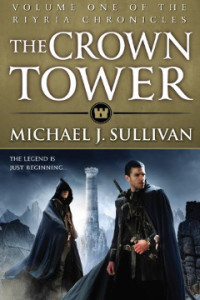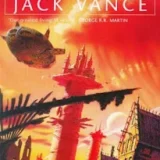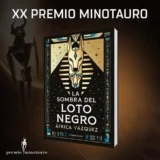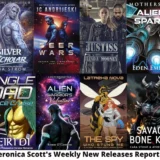Matthew Hughes is a Canadian author of science fiction and fantasy.
In 2020, he was inducted into the Canadian Science Fiction and Fantasy Association’s Hall of Fame.
His latest novels are Ghost Dreams, a supernatural thriller about a burglar who helps a ghost find what happened to her stolen child, and Barbarians of the Beyond, an authorized companion novel to Grandmaster Jack Vance’s iconic series, The Demon Princes.
His magnum opus is What the Wind Brings, a historical novel with magical realism elements. It was the first Canadian work to win the international Endeavour Award He waited more than forty years to write the novel and spent a year composing several drafts, made possible by a $25,000 grant from the Canada Council for the Arts.
His short fiction has appeared in Asimov’s, Fantasy & Science Fiction, Lightspeed, Pulp Literature, Postscripts, Storyteller, Interzone, Amazing, Unfit, and several anthologies edited by Gardner Dozois and George R.R. Martin, including the bestseller, Rogues.
His works have been short-listed for the Aurora, Locus, Nebula, Philip K Dick, A.E. Van Vogt, Neffy, Alberta Book Publishing, and Endeavour Awards.
–oo00oo—
If you were transported into one of your books as a character, what kind of character would you be and what kind of adventures would you have?
It’s been pointed out by critics and reviewers that I don’t write about heroic, “stand-in-the-breach” characters. I write about underlings and henchmen, or about people who don’t fit into the middle of the bell curve.
That’s because I spent most of my adult life as a henchman – as an adviser and speechwriter to powerful figures in the corporate world and politics (Canadian flavour). I had to freelance because I had learned I could never be a nine-to-five functionary. I’d either become a miserable drunk or someday pop my cork and burn the place to the ground. I had to be a freelancer or at least a member of a small team where I had a great deal of autonomy, as I was when I edited weekly newspapers or was an aide to cabinet ministers.
Also, I am an oddball and an outlier. I started out as a working-poor teenager with a 145 IQ and no prospects except whatever I might fluke my way into, which is how I became a speechwriter.
So I would transpose my same personality into one of my fictional worlds, and thus I would become an oddball who pursued a freelance-friendly profession. I might therefore become a discriminator, like Henghis Hapthorn, the Sherlock Holmes of Old Earth’s penultimate age under the rule of the Archonate. I would solve mysteries and astound my clients and the police.
If I found myself in my continuing extrapolation of Jack Vance’s Dying Earth milieu, I might choose the profession of necromancer (or as the slang term has it, ghost-wrangler). I’ve written a novel about such a fellow, Galabras Nachecko, that’s currently sitting on my hard drive until I see if I acquire an agent again, or just self-publish it. I would again resolve mysteries and traffic in the numinous.
Or, possibly, I might become a criminal, like Luff Imbry or the thief Raffalon. I come from a family in which minor criminality was not unheard of, and I dabbled in crime as a youngster before psychedelics showed me a better way.
If you had to choose between being a time traveler or a space explorer, which would you pick and why?
Time traveler, no question. Space is an inhospitable environment where death lurks for anyone who makes a tiny mistake. Faster than light is apparently impossible, so I would have to mooch around the solar system, taking months if not years to get anywhere, or commit myself to a century-long sleep (and maybe never awaken) to arrive finally at some place that might be too hot, too cold, or too oxygen-free to sustain myself.
On the other hand, I’ve read a lot of history and fancy myself able to blend into substantial parts of the past, although I would always be mindful of L.P. Hartley’s insight: “The past is a foreign country. They do things differently there.”
One thing I would do in the past would be to acquire interesting objects and bury them where I could dig them up again after returning to the present. Uncirculated coins. Small statues of gods. Some nice Celtic knotwork. One of Beethoven’s scratched-out early drafts. Worth a fortune in our time. Could finance the time machine.
One thing I would avoid is major battles, or even skirmishes. So easy to be collateral damage when the cannonballs or arrows fly. Also, slave-takers often snapped up stray wanderers.
If you had to choose between having the ability to speak with animals or plants, which would you choose and why?
I already do have the ability to speak with animals and plants. I spoke to the dog I’m currently pet-sitting just minutes ago. He’s deaf as a post, but I still fall into the habit of say, “Good boy.”
But I presume you’ve clumsily advanced the notion of being able to hear what they have to say. In that case, I’d converse with animals, at least in some cases. Call me an animal kingdom chauvinist, but I doubt that plants would have much to contribute to a conversation.
And I’d be choosy about which animals I engaged with. People rhapsodize about bird “song,” which isn’t song at all. It can sound sweet to our anthropomorphizing ears because the throats and vocal chords producing it are tiny. But enlarge a canary to the size of a turkey and what will come out of its widened apparatus would be a series of harsh squawks.
Besides, I already know what birds are communicating by their trills. It’s either, “Hey baby! How’s about a little nooky?” or “Get away from my tree or I’ll effing kill you!”
But whales might have some interesting perspectives to share. And maybe elephants. They have long lives and time to think.
Cats and dogs? With dogs there would be a lot of “Can we play ball some more? Can we, can we?” With cats, “Feed me salmon,” followed by “Take a hike, two-legs.”
What Pre-1960s SF television show or movie would you like to see get a big-budget remake, and why?
Forbidden Planet. That’s the 1957 B-movie with Leslie Nielsen in his non-comic days and the sadly underused Anne Francis. Rare for that age of creature-features, it had psychological depth. Indeed, the “monster” that attacks the rescue party come to collect the last survivors of a scientific expedition is literally a creation of the last surviving scientist’s id.
The movie has a particular resonance for me because acclaimed editor Pete Crowther asked me to contribute to an anthology of stories, Forbidden Planets, created to mark the fiftieth anniversary of the film’s release.
It was while I was crafting my Luff Imbry novelette, “Passion Ploy,” for Pete that I realized the idea of a subterranean alien influence, the crucial plot device in FP, had made its way into a story of mine – actually two of them, Black Billion and its companion novel, The Commons. The monster in both narratives (sorry for the spoiler) is the collective unconscious of a parasitic alien species that had invaded Old Earth aeons before, and which was still extant and rising to seize control of humanity once more.
The special effects of the original Forbidden Planet were pretty good for their time, if we gratefully erase Robby the Robot from our memory, but modern CGI could do wonders with the concept.
Name the strangest/weirdest place you’ve ever written. What made it so odd?
The world of Fulda, a minor and disregarded planet in the civilization of the Ten Thousand Worlds.
Fuldans have given themselves over to an ideology based upon the idea of the bell curve, and specifically on the belief that the mean is perfection. There is an ideal bodily form and facial conformation and those who fall too far outside the middle of the bell curve are ostracized and forced to travel as a collection of sideshow freaks that the regular folks can gawk at and generally treat like dirt. Except for those regulars who have secret erotic predilections.
Into this strange milieu comes Luff Imbry, a supremely corpulent master criminal (modeled on Sydney Greenstreet’s characters in The Maltese Falcon and Casablanca – watch them, if you never have; they’re two of the greatest films ever made.). Shanghaied by an unknown enemy, Imbry has been dumped on Fulda with the enemy’s expectation that he will not survive.
But Imbry is resourceful and manages not only to survive but to decipher a world-ending threat that no Fuldan has ever countenanced. If only he can get off-planet before the apocalypse arrives.
–oo00oo—
The best thing I’ve ever written is What the Wind Brings, a historical novel with slipstream elements (shamanism), based on real events and personalities who came into contact and conflict with each other when African slaves were shipwrecked on the jungle coast of Ecuador in the mid-1500s.
Most of my works are entertainments, but WtWB is my magnum opus that I waited more than 40 years to write, while it germinated in my unconscious after I read a footnote in a university text back in 1971. It is the only Canadian title ever to win the cross-border Endeavour Award in that prize’s twenty-year-plus history.
You can find it on Amazon at https://www.amazon.com/What-Wind-Brings-Matthew-Hughes-ebook/dp/B081PTNNGC/
You can find me on Facebook at https://www.facebook.com/hapthorn
On Twitter, while it lasts, at https://twitter.com/hapthorn
I also have a Patreon account at https://www.patreon.com/user?u=4687520
His web page is at https://www.matthewhughes.org
Lately, I’ve been posting episodes of my unusual life in an autobiography-in-progress on Medium.com: https://medium.com/@matthewhughes_18174
Kermit is an omnicompetent individual who grew up in a former bawdy house before relocating to his state’s capital city. His family includes many talented artists and an uncle who founded The Church of Bigfoot. He has a passion for storytelling often exploring new ways to engage audiences.









